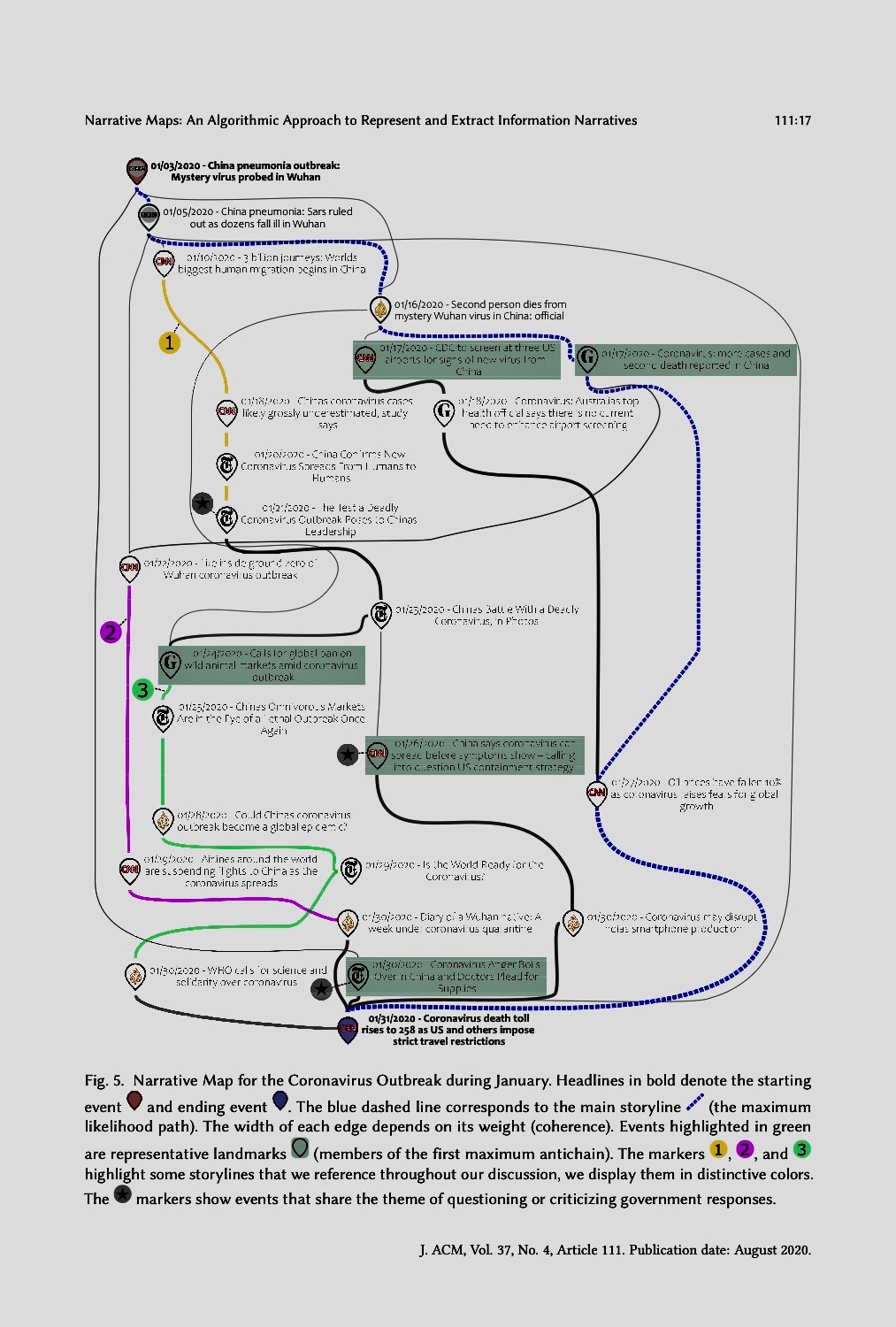Sanghani Center Student Spotlight: Brian Keith

Having earned two bachelor of science degrees, one in mathematics and one in engineering, and a master’s degree in informatics, all from UniversidadCatólica del Norte, Chile, Brian Keith was looking for a flexible Ph.D. program. The Virginia Tech Department of Computer Science provided that flexibility and led him to the Sanghani Center where interdisciplinary data science is a key focus.
In his Ph.D. research, Keith, co-advised by Chris North and Tanushree Mitra — is exploring online information narratives, in particular, how to represent, extract, and visualize them. He is also analyzing the issue of how misinformation spreads in these narratives.
“As an example,” Keith said, “consider how the coronavirus narrative evolved in the news during its first month, starting from a few articles mentioning it as a mysterious virus in China, to reports of new cases in other countries, and then an explosion of news regarding its spread and lethality. Or more recently, consider the U.S. presidential election and how different narratives and counter-narratives have been spreading, interlaced with misinformation and fake news. Understanding how these narratives are created, how they spread, and how they influence people is key to properly countering misinformation campaigns.”
Last month, Keith presented “Evaluating the Inverted Pyramid Structure through Automatic 5W1H Extraction and Summarization” at the 2021 Computer + Journalism Symposium. In this paper, the researchers analyzed news articles in an attempt to measure how well they adjust to the “inverted pyramid” structure used by journalists.
“To do this we extract the answers to the basic journalistic questions who, what, where, when, why, and how) and compute a mathematical score. One of the potential applications of this could be to detect fake news or evaluate credibility, under the assumption that fake articles likely do not follow professional journalism standards like using ‘proper’ structure,” Keith said.
During a separate session at the symposium, Keith discussed his work on “Narrative Maps: An Algorithmic Approach to Represent and Extract Information Narratives.” Last fall, he presented the full paper on this research at the 23rd ACM Conference on Computer-Supported Cooperative Work and Social Computing (CSCW 2020).
Keith is currently on track to receive his Ph.D. in Spring 2023. When he graduates he plans to return to his alma mater, Universidad Católica del Norte, where he will have a position as assistant professor as part of the Fulbright Faculty Development Program.